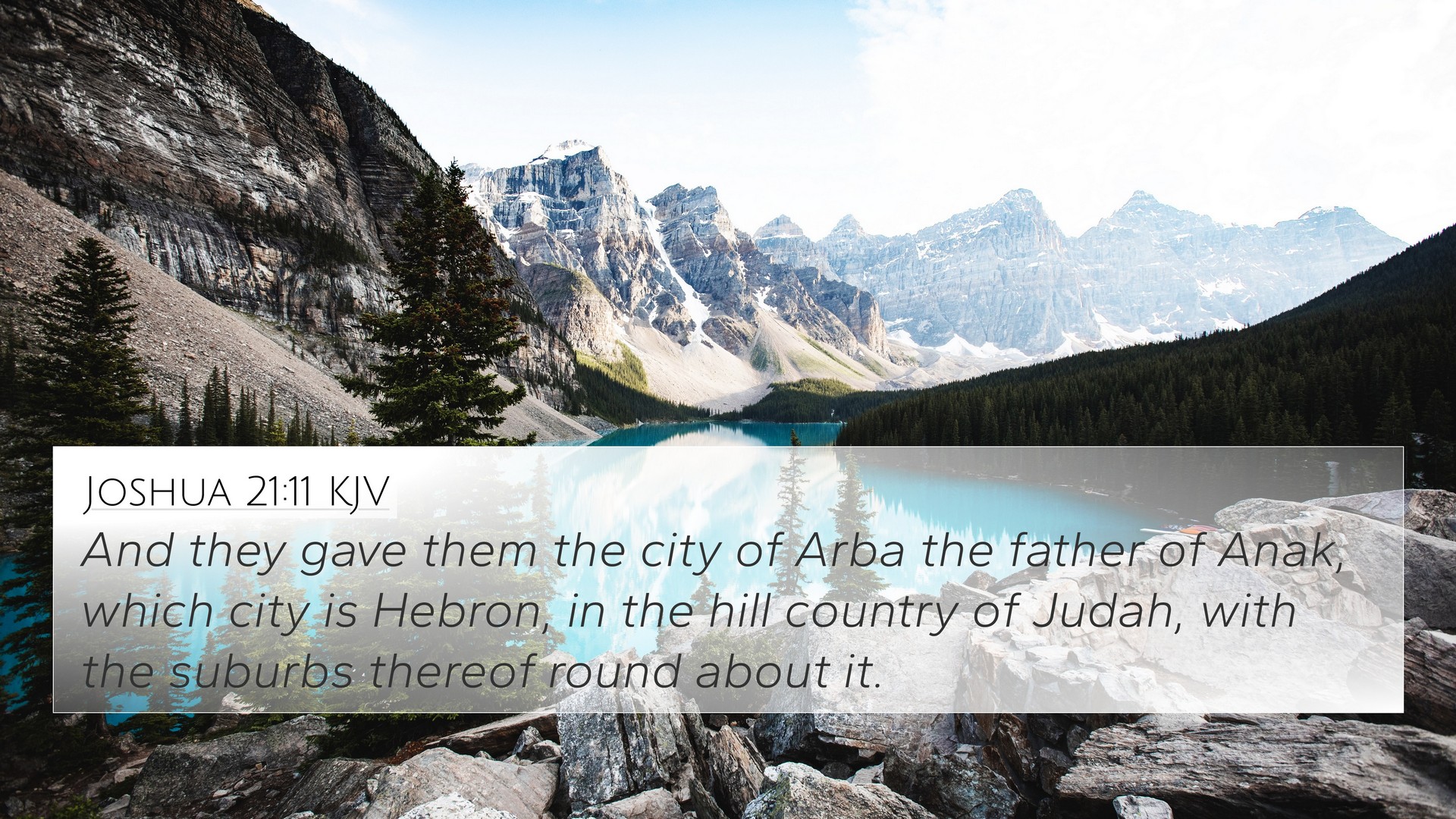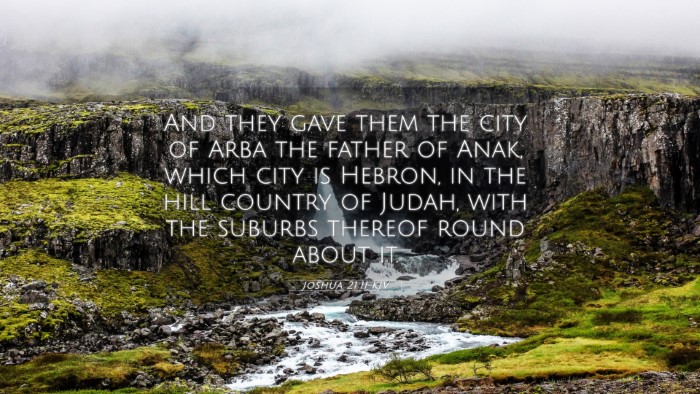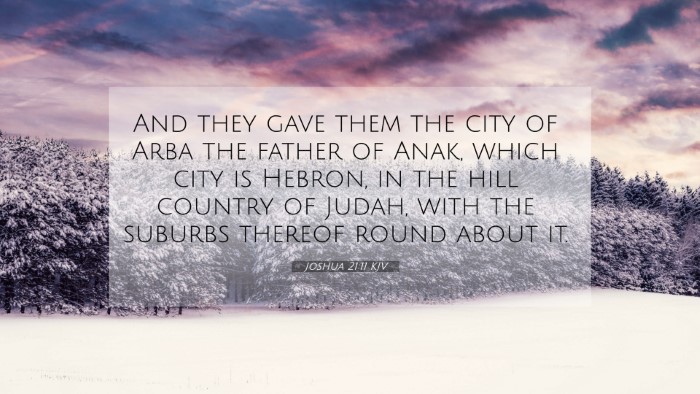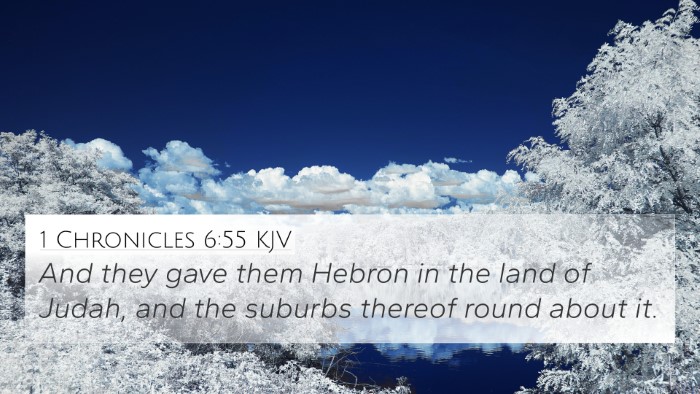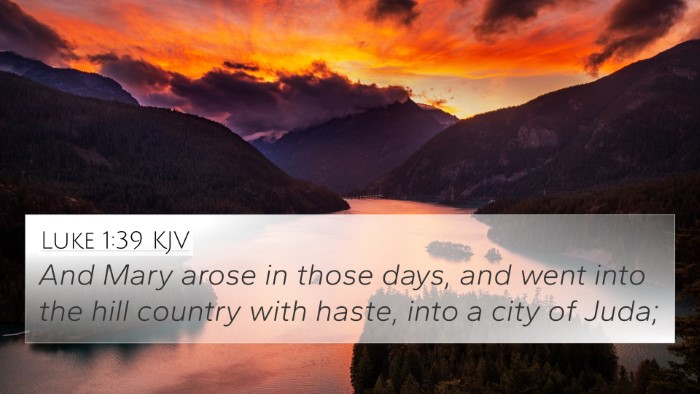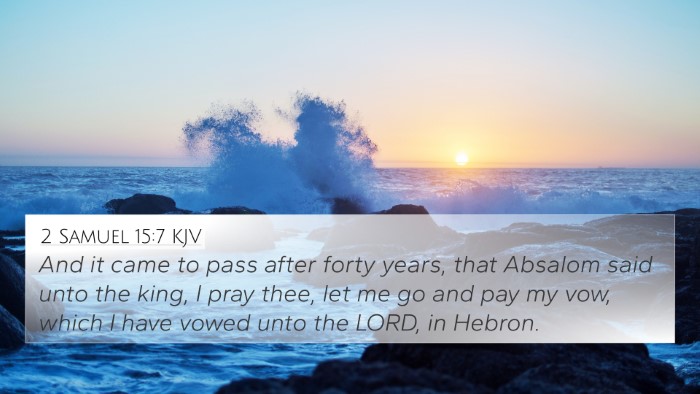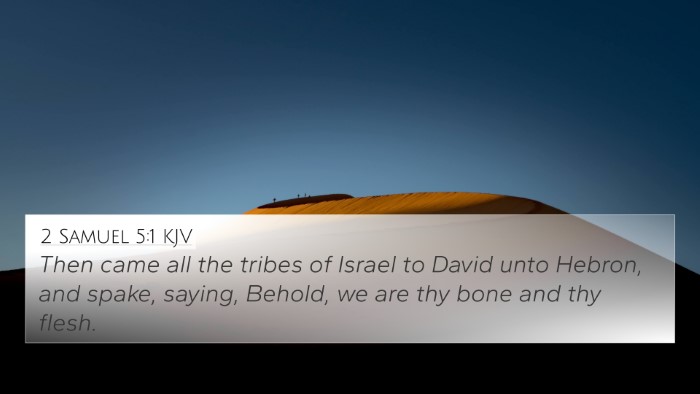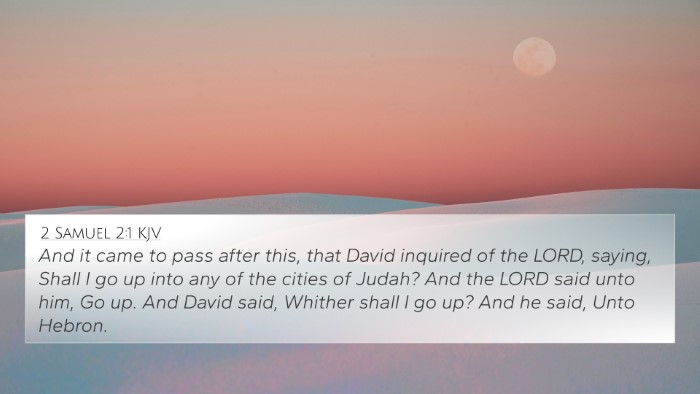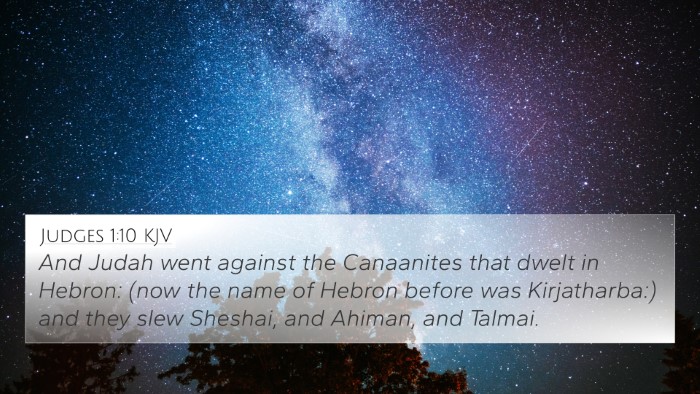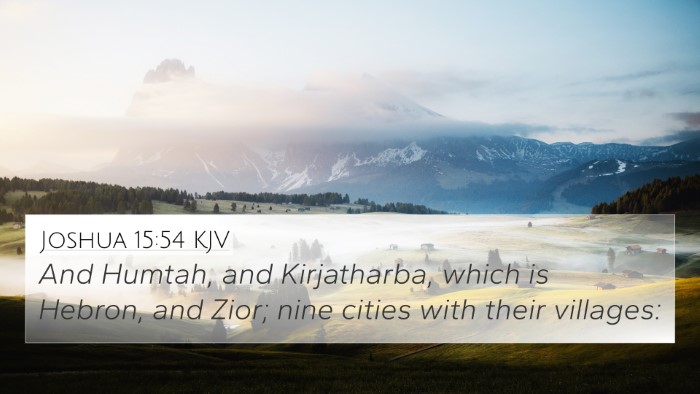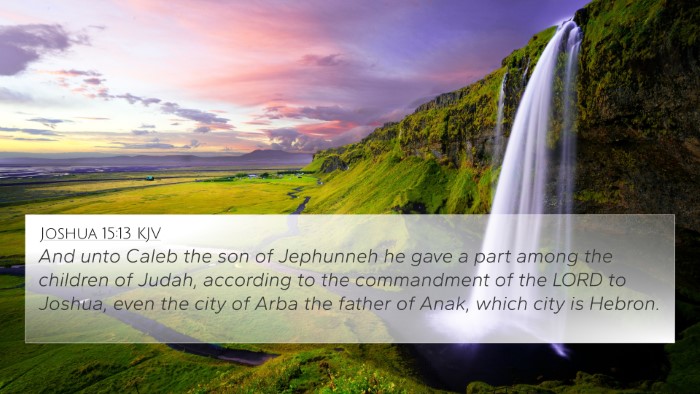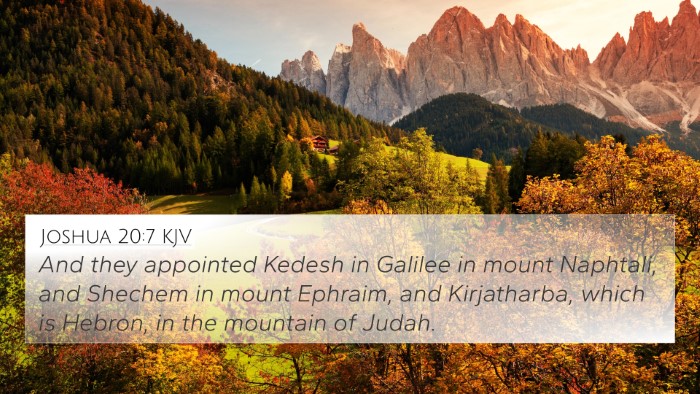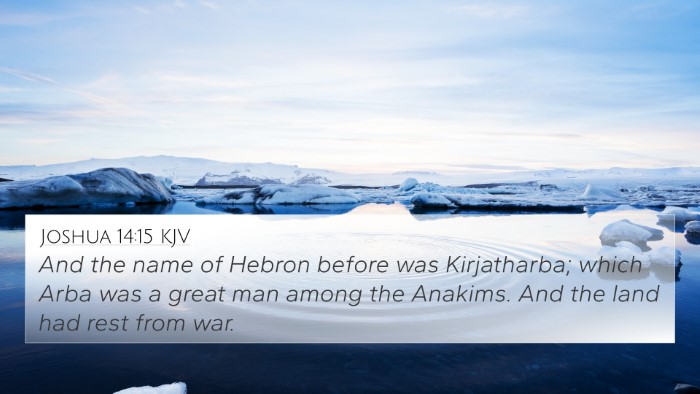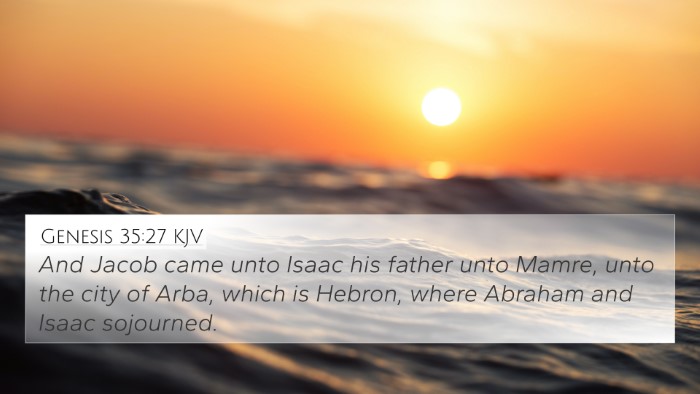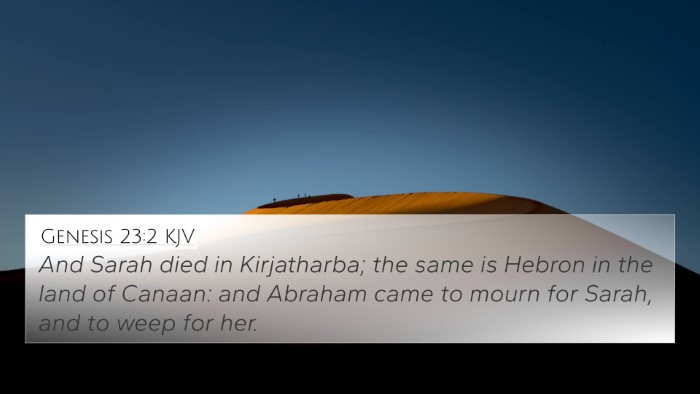Understanding Joshua 21:11
Joshua 21:11 states: "And they gave them the city of Arba, which is Hebron, in the mountains of Judah, with the common lands thereof round about it." This verse is significant in both historical and theological contexts as it marks the allocation of a vital city in the tribal divisions of Israel.
Historical Context
This verse highlights the distribution of cities among the Levites, who were the priestly tribe of Israel. The specificity of Hebron as 'the city of Arba' is notable, as Arba was a significant figure in the patriarchal narratives, being the father of Anak, thus connecting this city to the history of Israel's conquest of Canaan.
Thematic Analysis
Hebron's selection as a Levitical city emphasizes not only its religious importance but also God's faithfulness in fulfilling His promises to the descendants of Abraham, Isaac, and Jacob. Henry states that this allocation validates the faithfulness of God in preserving the tribes' inheritance.
Barnes asserts that Hebron serves as a reminder of God's provision and guidance as the Israelites settle into their land, thus establishing the connection between divine promise and human history.
Cross-References and Connections
This verse can be cross-referenced with several other scripture passages to deepen understanding:
- Genesis 23:2: The burial site of Sarah, indicating the importance of Hebron.
- Numbers 35:27-28: Addresses the cities of refuge, indicating Hebron's role as one such city.
- Deuteronomy 19:1-3: Notes the provision of cities of refuge for the Levites.
- Joshua 14:13-15: Caleb's claim to Hebron shows the city’s heritage and promise fulfillment.
- Revelation 7:7: The tribe of Judah is mentioned, linking back to the cities allocated.
- 1 Chronicles 6:57: Further emphasizes the Levitical cities and their roles.
- Hebrews 11:9-10: Connects the faith of Abraham with the land's promise, echoing the significance of Hebron.
Interpretative Insights
Clarke adds that the mention of common lands indicates not just ownership but also the land's purpose for community, reinforcing social structures within Israel. The common lands provided sustenance for the Levites, who served in the temple and had no personal estates, thus showing God's ongoing provision.
The act of giving Hebron to the Levites brings to mind how God systematically arranged the land's allotment, revealing a divine order that reflects His sovereignty.
Conclusion
Joshua 21:11 serves as a critical link in understanding the inheritance of the Israelites, particularly the Levites. By cross-referencing with other biblical texts, readers can explore the rich narrative of God’s promises and the importance of community among His people. The study of connections between Bible verses like this one highlights the cohesive nature of Scripture and its application to believers today.
Exploring Further
For anyone studying the Bible, utilizing tools for Bible cross-referencing can enhance your understanding of how scriptures relate to one another. Engaging in comparative Bible verse analysis, especially with verses that highlight the themes of inheritance, divine promise, and community, can deepen one's insight into the overarching narrative of the Bible.
Some suggestions for deepening your study:
- How to find cross-references in the Bible: Utilize a good Bible concordance or a cross-reference Bible study guide.
- Identifying connections between Old and New Testament: Look for thematic parallels that span both Testaments, such as promises and fulfillments.
- Cross-referenced themes in the Bible: Study how cities of refuge appear in both the Old Testament and Hebrew traditions.
